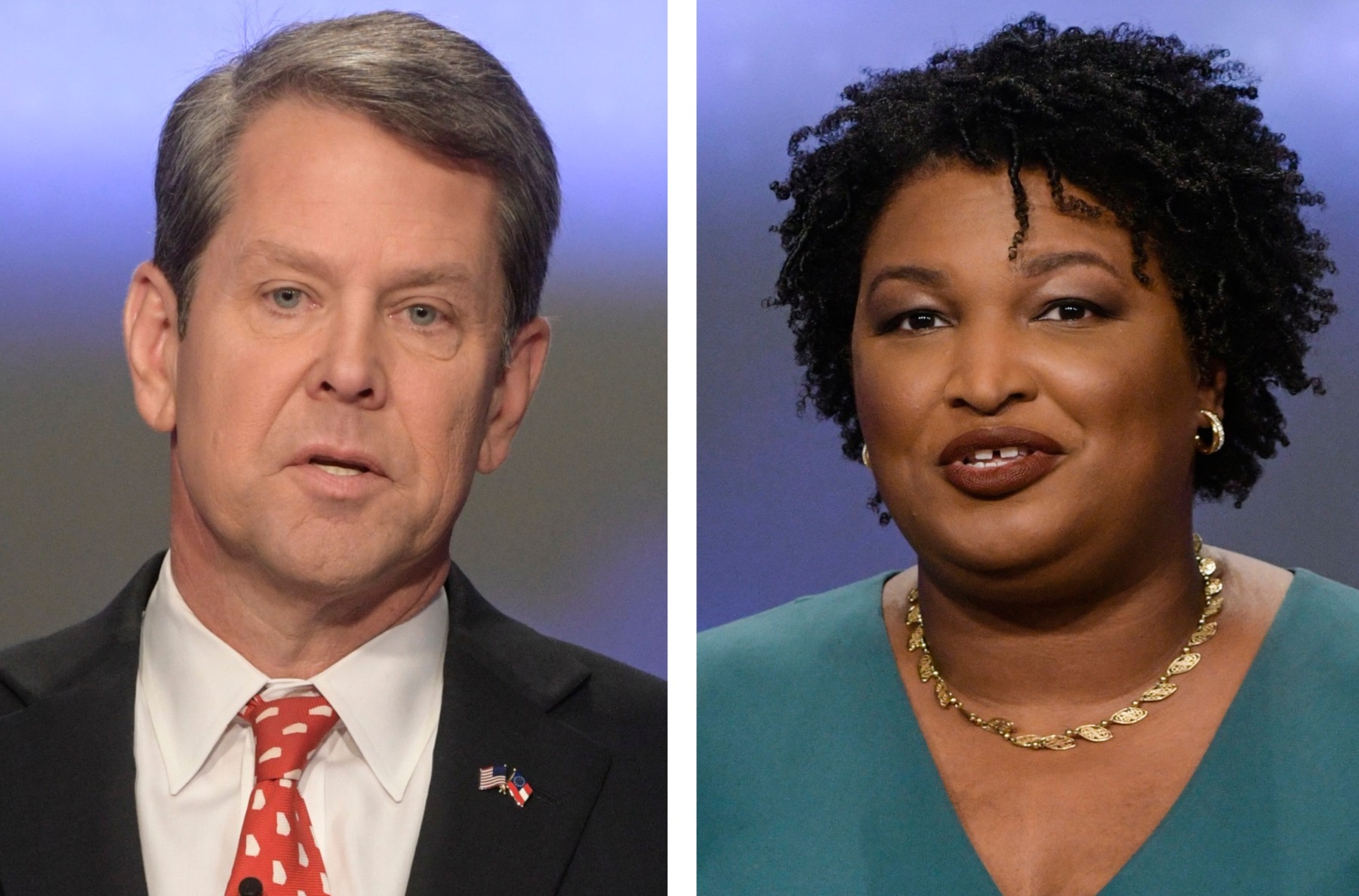Kemp And Abrams Make Their Pitches To Georgia’s Business Community

The Georgia candidates for governor, Republican Brian Kemp and Democrat Stacey Abrams, made their pitches to business leaders and politicians at Tuesday’s Georgia Chamber of Commerce Congressional Luncheon in Macon, their first event together.
John Amis / Associated Press file photos
Both candidates running for Georgia governor appeared at the same event Tuesday: the Georgia Chamber of Commerce’s Congressional Luncheon in Macon.
Congressional leaders spoke, but the headliners were Democrat Stacey Abrams and Republican Brian Kemp. Each made their pitches to business leaders and politicians at their first event together.
One consensus among this audience of more than 1,000? The need for a pro-business governor.
J. Berkshire is president of Georgia operations for telecom company Windstream Communications.
“For me, I want a candidate who is going to be pro-business,” he said. “If they’re pro-business and they want to continue to grow the workforce and grow the economy here in Georgia, then that’s good for all Georgians, and that’s what we really want.”
Which candidate better fits that bill? Berkshire said, to him, it’s still an open question.
In fact, Kemp and Abrams both painted themselves as that person.
Abrams pointed to her experience as minority leader in the General Assembly as evidence.
“I got an A rating from the Georgia Chamber and the Friend of Labor Award in the same year. It confused everybody,” she said.
Kemp countered that Abrams’ agenda would mean more taxes and bigger government.
Both candidates highlighted their own small business experience. In fact, Kemp said he entered politics as a frustrated small business owner.
“I was fed up with government overreach and oversight. Rules, regulations, taxes. Some days I felt like I spent more time dealing with government paperwork than on the job site.”
Each spent time talking about the issue of lifting up rural Georgia, especially the need to improve rural broadband and rural health care. However, they presented different ideas about how that could happen.
Kemp said economic development needed to come first.
“The hospital closes and you lose jobs, but if you don’t have businesses investment and people working in the community, you’re never going to be able to support a hospital in the first place,” he said to media after the event. “I think the same is the case with rural broadband.”
Abrams said it was the reverse, that business investment would not come until rural health care and infrastructure are improved. She pointed to Medicaid expansion as a big way to fix one of those problems. Kemp countered that “throwing more government money at a failing system is not going to be helpful to rural Georgia.”
Both candidates agreed that the state needed to keep its business-friendly reputation, but they reinforced their disagreement on whether religious freedom legislation would jeopardize that. It protects businesses that turn down customers for religious reasons, and Republican Gov. Nathan Deal vetoed legislation like it in 2016 after pressure from the business community.
Abrams pledged her opposition to such legislation: “We cannot be a state that tells people that they are not worthy of being here, that legalizes bigotry. Whether that bigotry is based on sexual orientation, immigration or religious status, we have to be a place that’s open for business every day.”
Kemp supports such legislation and argued it wouldn’t hurt businesses.
Georgia officials have prided themselves on the state’s business-friendly climate, but attendees at Tuesday’s luncheon seemed noncommittal about which candidate would best maintain that reputation.
Cathy Hill runs the Hill-Plummer Group in McDonough. She said even after the speeches, it’s still not clear which candidate is better for the business community.
“I think they have helped position the next questions that needs to be answered,” she said.
Stuart Countess, chief administrative officer at KIA Motors Manufacturing in West Point, said he learned some things about the candidates at the event but nothing much surprising: “We just need to hear what their viewpoints are and how that fits into our overall business.”
Chris Clark is the president and CEO of the Georgia Chamber who moderated the event.
“Quite frankly, it wasn’t this Donald Trump, Bernie Sanders or Hillary Clinton difference, right? It was really candidates talking about much the same thing, mainly the same issues, just maybe a different tweak at the end of the day,” he said.
Clark said while the chamber has endorsed incumbents with business-friendly track records, like with Deal, it wouldn’t endorse either candidate in an open race like this one.








